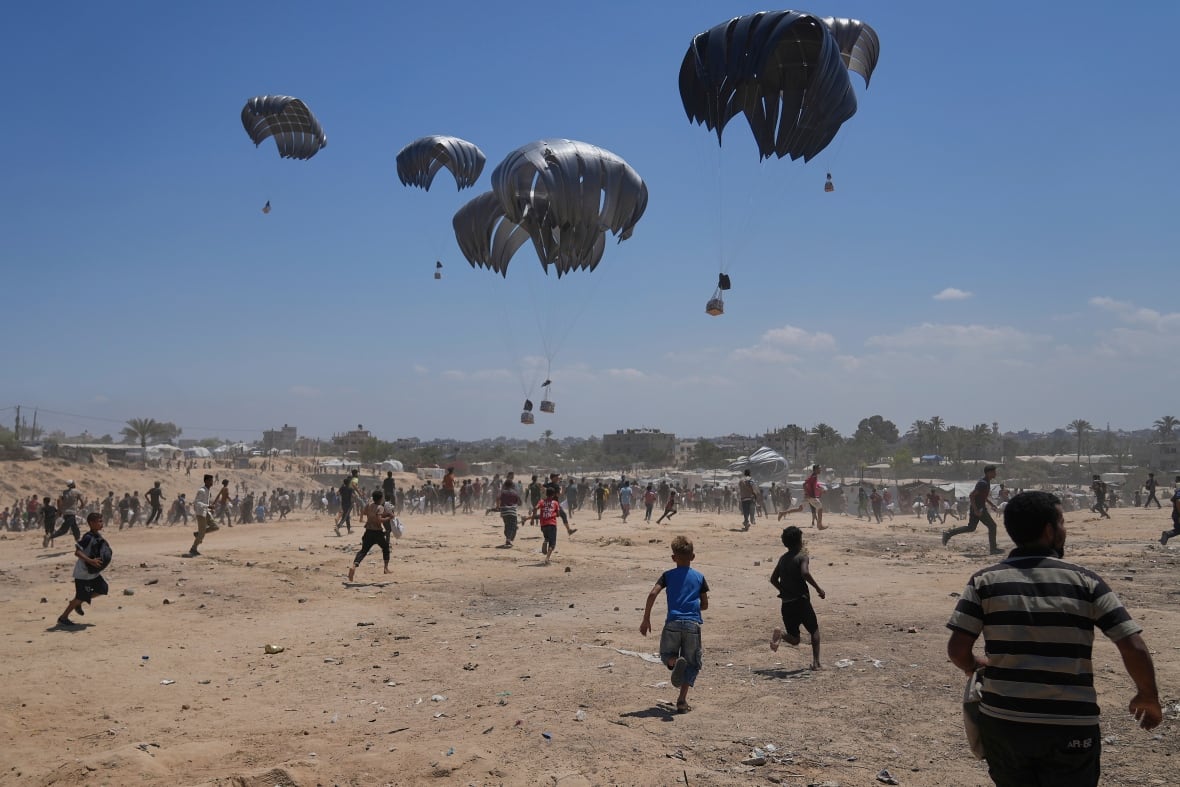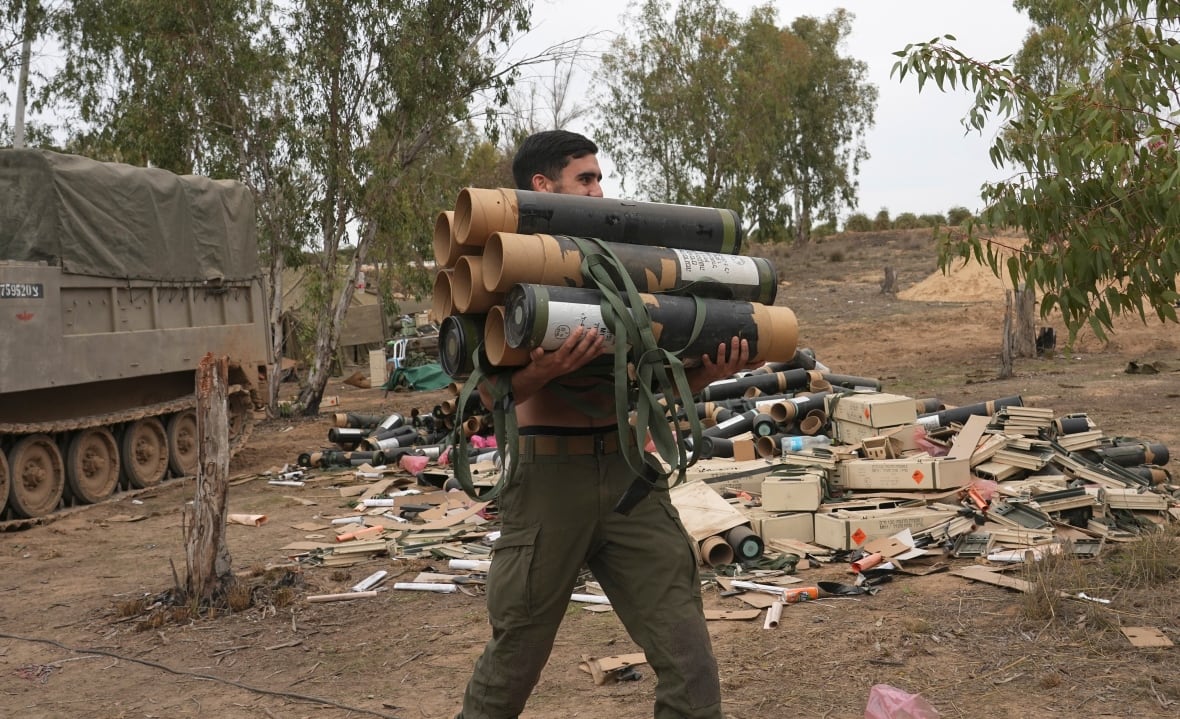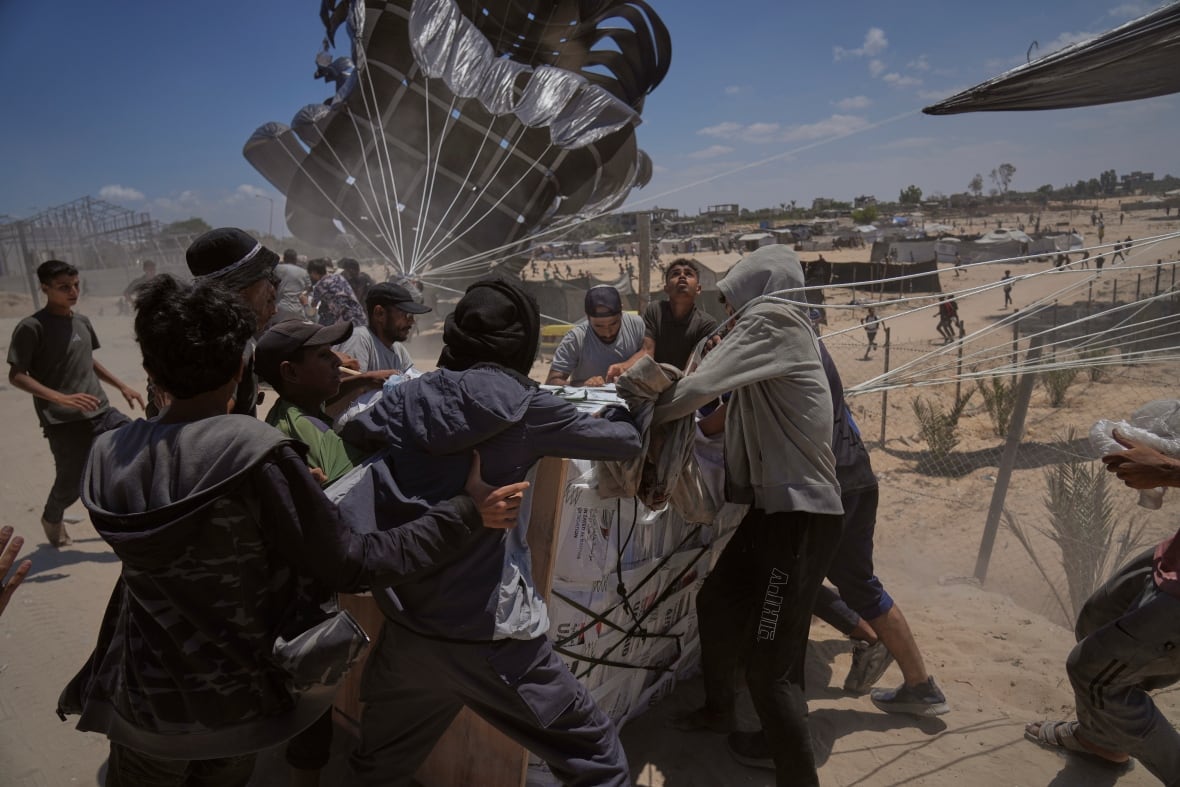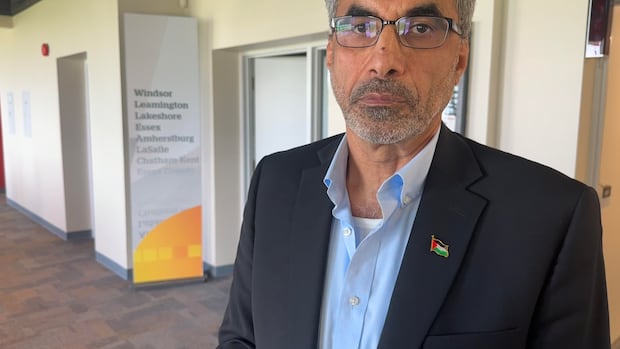Palestinian-Canadians feel 'betrayed' by Canada, demand end to violence, starvation in Gaza
Israeli-imposed blockade and military offensive have made it nearly impossible to safely deliver aid
Watching the violence in Gaza unfold for the last 22 months has been painful, traumatic, and a "continuous nightmare" for Palestinian-Canadians in Windsor — and according to some advocates, the last several weeks have gotten even worse.
The Gaza death toll has hit 60,000, with reports of widespread starvation, malnutrition and disease after months of an Israeli-imposed blockade and almost two years of Israel's military offensive.
On July 29, the Integrated Food Security Phase Classification (IPC), which monitors hunger around the world, issued a famine alert for the enclave.
Advocates say the Canadian government and international community need to do more to end the violence and the starvation.
"It's like nothing you've ever imagined humanly possible," described Maher El-Masri, a Palestinian-Canadian living in Windsor with family still in his homeland of Gaza.
"To see the sheer level of suffering and trauma, not only in Gaza, but also to us living here," he said. "In my household, we haven't had a normal day. You don't have a normal day."
In the time of genocide, you cannot be political. You have to be principled.- Maher El-Masri
Each day he calls his siblings and cousins to make sure they are alive and to find out where they are located, because they've been displaced many times. He's already experienced direct loss as a result of the conflict: he told CBC that his brother was shot and killed by an Israeli sniper on December 5, 2023. He said his family is exhausted from the prolonged suffering to the point where they are wishing death.

"Food is really dwindling," he described. He's able to send some financial support to his loved ones, but food prices have become "astronomical," he said.
"You can buy a kilogram of bread for close to $50... which is unbelievable. So, they're lucky if they find flour to do bread, pasta, plain pasta, they do it with salt and water, or lentil soup. That's their meal and they eat about pretty much once a day," he said.
'I feel betrayed'
All the while, a report last week suggested that arms still flow from Canada to Israel despite the government being adamant that it has not allowed arms shipments to Israel since January 2024. However, Israeli import data and publicly available shipping records appear to contradict that claim, showing imports of Canadian "bullets" and other military hardware. The data was uncovered by a group of researchers from four NGOs: World Beyond War, the Palestinian Youth Movement, Canadians for Justice and Peace in the Middle East and Independent Jewish Voices.
"To put it mildly, I feel betrayed," El-Masri said. "We're a country that stands for values, stands for principles. We preach freedom and liberty across the world.... And now to see this is happening from a country like Canada, it's a betrayal of everything that we stand for."
It's a sentiment shared with other Palestinian-Canadians in Windsor.
Windsor's Bilal Rafiq, a member of the Palestinian Solidarity Group at the University of Windsor says it's "very difficult" for the community.
"We're watching our people every single day cry out to the world to help us, and the world is... not only turning our backs on the suffering of the Palestinians, we're actually actively aiding and abetting Israel as it commits a genocide against us," he said.
"If Canada actually cared about Palestinian sovereignty and statehood, we would be placing an immediate arms embargo and sanctions on Israel, and working as much as we can to stop this genocide — not being complicit in it."
Rafiq said the arms report should result in a "political crisis" that the government should answer to, saying that the Canadian people should be holding the government accountable to this.
Canada plans to recognize Palestinian state
On July 30 Canada said it planned to recognize a Palestinian state in September, provided the Palestinian Authority commits to certain reforms, including demilitarization. In doing so, Canada joins other Western countries making similar declarations in recent weeks to apply pressure on Israel. Israel has said that a Palestinian statehood would be a "reward" for militant group Hamas, which governs Gaza.
Rafiq said this is a "performative" statehood declaration and does little to end the violence in Gaza.

El-Masri also believes it's "political posturing" to release pressure.
He also stresses that while he would love to see the recognition of a Palestinian state, tying it to conditions like demilitarization is a "recipe for failure."
Advocates with Windsor's Palestinian Canadian Community Association agree.
"We don't want anyone to announce the Palestinian state with any condition. Let the Palestinians themselves to decide. Let them be free. And that's what we're asking all the time. Free Palestine," Maher El-Youssef told CBC.
Fellow advocate Saaed AlFaqeeh explained that the last two years have been exhausting and have taken a toll on the community, watching their people getting "massacred" all while trying to bring awareness and lobby the government for action.
AlFaqeeh said that all the while, the community is facing increased anti-Palestinian racism while still having to go on with their own lives.
"That has been extremely devastating to the community. I mean, we feel let down by our government here in Canada," he said.
A toll on the Palestinian community
El-Masri implores people to tap into their common sense humanity, regardless of their faith or nationality, to intervene and help the Palestinian people. He points out that children and babies are dying of starvation and if action is not taken, the situation will get even worse.
"Send food to people and make sure they're surviving," he implored.

According to the IPC, which describes the situation in Gaza as "the worst-case scenario of famine," more than 20,000 children were admitted for treatment for acute malnutrition between April and mid-July, and hospitals have reported a rapid increase in hunger-related deaths in children under five, with at least 16 deaths since July.
With international criticism growing, Israel announced steps in recent days to slightly ease aid access, but some organizations like the World Food Program said last week, it was not getting the permissions it needed to deliver enough aid.
'End the genocide,' El-Masri implores
Canadian Forces also airdropped humanitarian aid into Gaza for the first time on Monday, even though aid experts have said that airdrops are vastly less effective than truck convoys. Some of the pallets dropped by air earlier this week have fallen into the sea, and at least one has struck and killed Palestinians on the ground.
"In the time of genocide, you cannot be political. You have to be principled," El-Masri said.
"And the right principled position is to end the genocide and call for justice in Palestine. End the occupation. 76 years of occupation are more than enough for us."
Meanwhile, Israeli media is reporting that Israeli Prime Minister Benjamin Netanyahu favours a complete military takeover of Gaza for the first time in two decades, and was to meet senior security officials on Tuesday to finalize a new strategy. This, after mediation between Israel and Hamas collapsed despite intense international pressure for a ceasefire.
